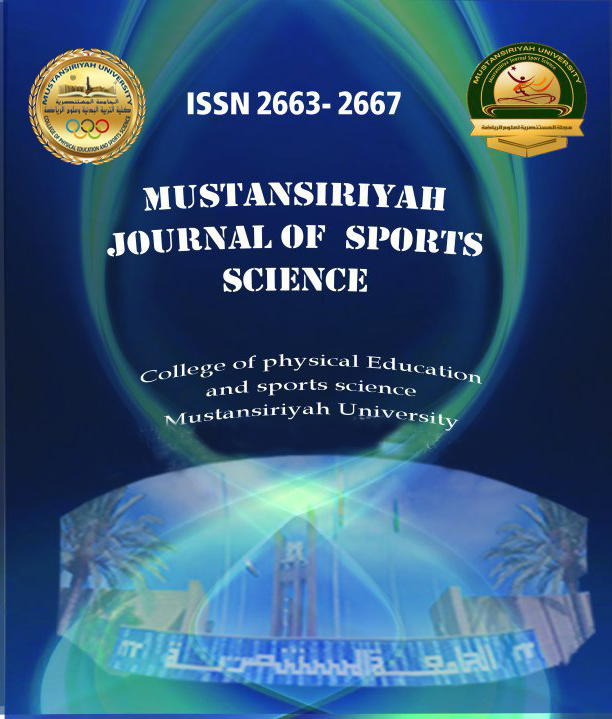The effect of a training program in the style of mini-games on some Skill variables for transient-ball female players
Main Article Content
Abstract
The research aims to reveal the significance of the differences in some skill variables of the cross ball players between the pre- and post-tests for the experimental and control groups, as well as to identify the significance of the differences in some skill variables of the cross ball players between the experimental and control groups in the post test and to verify the objectives of the research The researchers assumed that there were statistically significant differences in some skill variables of the experimental group between the two tests, the pre- and post-tests, and in the interest of the post test. The experiment was carried out on a sample of the national team players with volleyball, they were chosen in a deliberate way and divided randomly into two groups (experimental and control) and by (7) players for each group.Homogeneity and parity was achieved between the two research groups in the following variables (age, height and weight), and the skill variables that were identified by experts and specialists. In light of the results, the researchers concluded: Using the mini-game's method, all skill variables developed by comparing the results of the pre- and post-tests of the experimental group. The curriculum prepared by the coach led to the development of some skill variables under study. The experimental group that used the mini-games method achieved a better development than the control group, in the skill variables dealt with in the research, by comparing the results of the post-tests between the experimental and control groups
Downloads
Article Details

This work is licensed under a Creative Commons Attribution-NonCommercial 4.0 International License.

